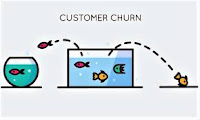If you have ever worried about your job/livelihood with the rise of AI - such headlines don't help.
E.g. The Guardian - A robot wrote this entire article. Are you scared yet, human?
Forbes - Robots Aren't Taking Over The World (Yet)
Quick background:
The current wave of AI is improving prediction which is a critical part of intelligence. Be it predicting whether the stocks will go up/down, traffic, or predicting whether to wear a jacket because it will be cold - prediction precedes and is a necessary part of intelligence. And the prediction is getting cheaper by the year.
What does this mean to current/future jobs?
If the prediction can be codified with a good/great return on investment, that job/task is likely to be automated by AI.
E.g. Reading X-rays or biopsies, credit card fraud detection, pre-authorizing healthcare bills etc.
The potentially scary side is, some parts of many jobs and all parts of some jobs would be open to this automation. Although it is potentially exciting if you are the one automating or implementing the AI.
Some studies suggest that by 2030, intelligent agents and robots could replace as much as 30 percent of the world’s current human labor. I think the phrase "current human labor" is critical there. The nature of jobs will change so we might not have such a (or any) drastic change in the labor market. When the printing press was invented, when computers were newly introduced - many jobs were lost...and many were created. So it's not all bad news... however, there is some potentially bad news.
The (potentially) bad news:
Previous technologies largely didn't infringe on the sacred judgment capability of humans as machines weren't as good as humans at it... until recently. From the self-driving cars of Tesla to the AlphaGO AI - machines are now better at the judgment in many tasks when compared to us...and they are rapidly improving. And they don't ask for fair wages either.
So what's next?
Some of the smartest people disagree on what's next. Doom? Unprecedented progress? More inequality?
In this context - I have a macro view that there will be changes even though I don't know how profound they will be. Then comes the more practical micro view - What should I do?
My way to deal with this is to arm myself with how I can be a part of this wave of change to make my tasks/career/life better. One small way to start is to read and write more about this subject to make it a part of the future of my work.
And If...rather When AI becomes more commonplace and comes after my job... I'd like to be with it than against it.
Source/Suggested reading: Prediction Machines by Ajay, Joshua and Avi










